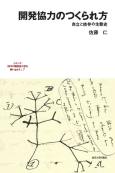Reconsidering the History of Japan's Development Cooperation Series, Vol. 7: The Making of Development Cooperation: Ecological History of Dependency and Self-Reliance

Why do many countries engage in development cooperation activities for the benefit of other countries? This book focuses on how Japanese development cooperation has evolved over the years, in an effort to discover the answer to this question. Reflecting on the history of development cooperation from three points of view—the Japanese government, the governments of recipient countries, and the people on the ground—the book attempts to look at symbolic events surrounding development cooperation from the perspective of dependency and self-reliance.
In Part One, the book carefully examines aspects such as the forces which pushed postwar Japan into Southeast Asia during the transition from postwar reparations to Official Development Assistance (ODA)—a shift that began in the 1950s and lasted until around 1965—as well as the systems of the countries who received assistance, using the Philippines, Indonesia, and Thailand as case studies. In Part Two, the book analyzes why Japan was able to become a major donor country from the late 1960s to around 1989, how that impacted various Southeast Asian countries, and the criticisms of ODA which were concentrated in the same period. In Part Three, it considers the roots of Japan's philosophy on assistance, which underwent a transformation from directing attention to self-help efforts to focusing on human security. In particular, the author visited 16 project sites that were exposed to heavy criticism 20 to 30 years ago to hear from local people who were opposed to ODA at the time, and find out what happened to then called "controversial projects.”
“What does ‘assistance’ mean?” That was the question which sprung to mind for the author, who traveled to the areas affected by the Sumatra earthquake in Thailand as a JICA expert. Contrary to the idea of assistance as delivering necessary goods to people in need, the author witnessed the reality of assistance that is "made" by the situation. Not only do the mutual relationships between people and organizations determine the success or failure of development projects, but also invisible "pressure," which encourages people to enact certain moves, is found to produce "assistance." Through this book, the author tries to unravel the way development cooperation goes through a series of "makings," while exploring the great waves of history which surround the practice of development cooperation.
This is the seventh volume of a seven-volume book series, "Nihon no Kaihatsukyoryokushi wo Toinaosu (Reconsidering the History of Japan's Development Cooperation)" published in Japanese as the result of a research project by the JICA Ogata Sadako Research Institute for Peace and Development, entitled "Japan's Development Cooperation: A Historical Perspective."
scroll